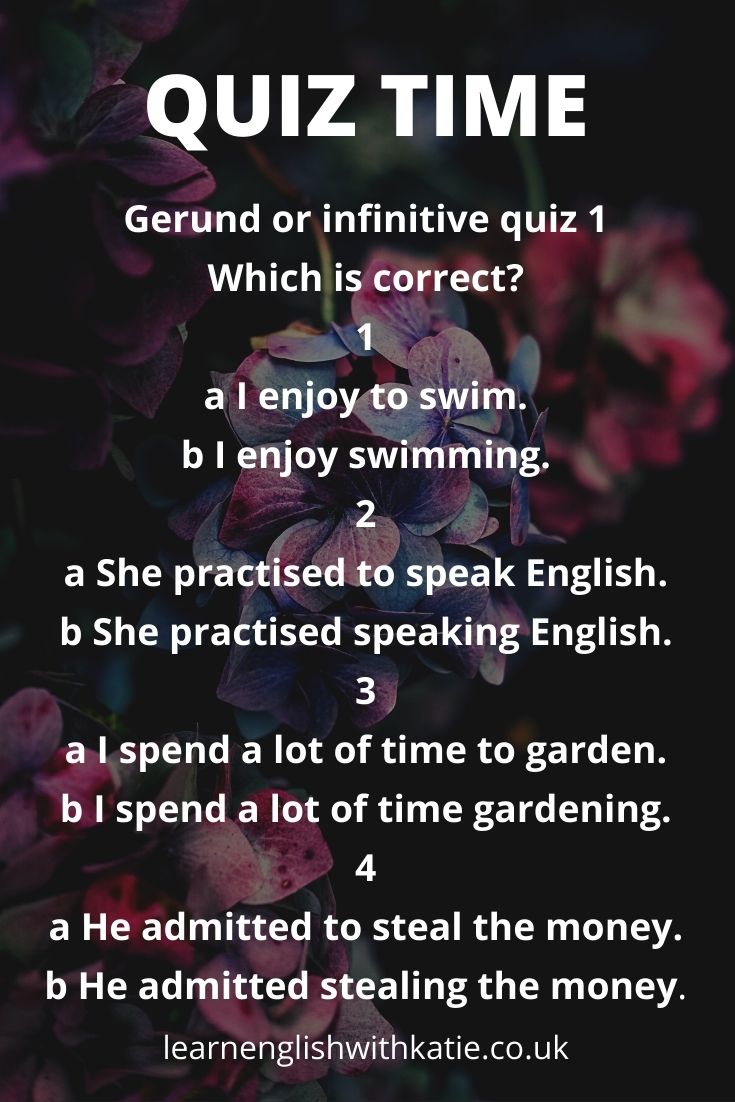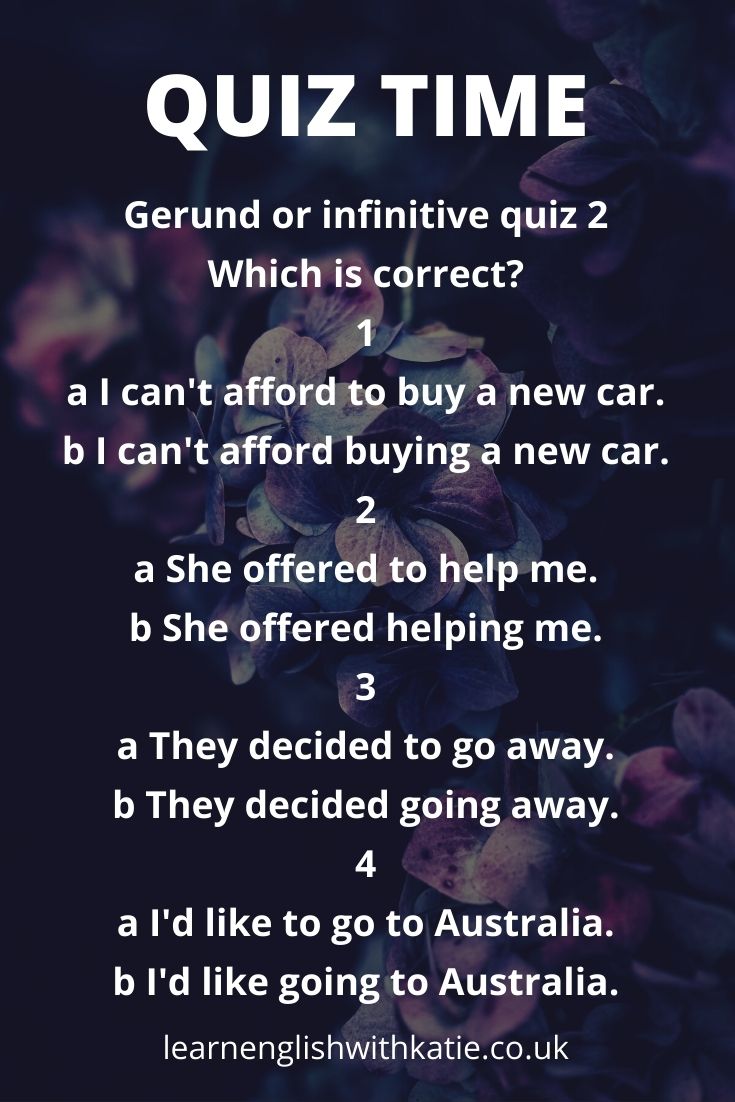See if you can find the answers by reading the rest of the post, then you can check if you were correct at the end. Some verbs are followed by the infinitive and others are followed by the gerund. Unfortunately there are no easy rules to help you. You just have to learn them! After these verbs, use the infinitive (verb 1) with "to": afford agree arrange ask choose claim dare decide deserve expect fail help hope intend invite learn manage need offer plan pretend promise refuse remind seem tend threaten want would like/love/hate/prefer (This is not a complete list but these are the most common ones.) For example: I can't afford to buy a new car. She offered to help me with my homework. They decided to go to Australia next year. Sometimes there is an object (a person) before the infinitive. I helped her to cook the dinner. She reminded me to buy some milk. They invited me to have dinner with them. After these verbs, use the gerund (-ing): admit adore avoid can't stand consider deny enjoy fancy feel like finish imagine mind miss postpone practise risk spend (time) suggest waste (time) (Again, this is not a complete list. You can find more if you search for "gerund or infinitive" online but be careful because some sites are wrong and there may be some differences in American English.) For example: I enjoy swimming. I spend too much time watching TV! I don't feel like cooking this evening. Let's go out. We also sometimes use the gerund after a phrasal verb. For example: He gave up smoking. I'm looking forward to seeing you again. He wants to go on working until he is 65. Quiz answers: In the first quiz, the answer for every question is B but in the second quiz the answer is always A. Click here for Gerunds and Infinitives Part 2. Click the buttons below to get my e-book which covers this topic in more detail, including practice exercises, and my free verb list.
3 Comments
M B Parmar
11/8/2021 12:19:40 pm
Dear sir,very useful exercise.regards
Reply
Katie
21/8/2021 05:17:25 pm
I'm glad you found it useful! Thanks for visiting!
Reply
Your comment will be posted after it is approved.
Leave a Reply. |
About the blogFollow the blog for mini lessons and tips on how to improve your English. Categories
All
Archives
July 2024
|


 RSS Feed
RSS Feed
